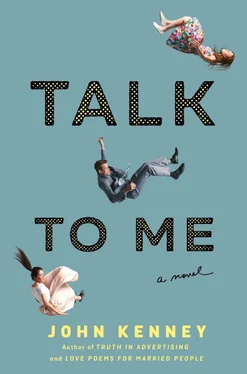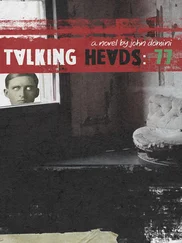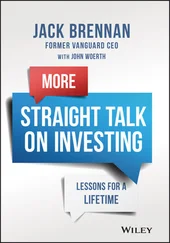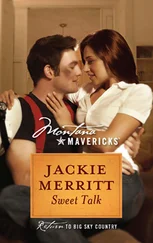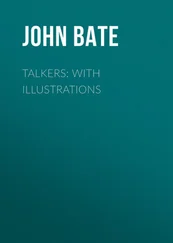“I’m Ted Grayson.”
The kid kept staring and it was unnerving. Ted saw in him a strength of character, a rawness and honesty, that was intimidating. What he had seen, what he had been asked to do, what he would have to live with.
Ted said, “What’s your name?”
The soldier pointed to his name, above his left breast. Kelly .
Ted had done a stand-up after a package showing footage gathered by a local camera crew who’d gone to the front. The military wouldn’t let Ted near the front and the network forbid it for insurance reasons. All they needed was a soldier talking about how important the war was. For the package. Ted was tired and sick of the place. He wanted to get on the plane and go home.
Ted tried again. “We were just hoping for your thoughts on how the fight was going, on what it means for you to be here, for the folks back home.”
The marine stared for too long and finally said, “Well, sir. Here’s what I think. You know what you look like? In your little flak jacket and shiny helmet? I think you look like an asshole. Sir.”
It happened. The number of interviews that go wrong, that amount to nothing, that end up not being used, subjects who don’t want to be asked questions. It happened.
It’s just that they had been rolling. The camera had. That’s how you do it. You have to roll. It’s not scripted. You can’t go again. So you roll. Picture and sound. Ted was wearing a lav. A lavalier mic on his shirt and it picked up everything. It picked up the kid. Ted had forgotten about it.
But now it was online. Someone had leaked it. And it was everywhere.
You look like an asshole. Sir.
The talk had been scheduled for six months. Despite the fact that it was to be held at the nation’s leading school of journalism, no one from the school seemed to have the remotest grasp on the news itself and how Ted speaking to graduate students might play. The paparazzi, though, were very much aware and made leaving his own building that morning difficult.
From the back of the car service that the university had sent, Ted could see the crowd in front of Lerner Hall at 116th Street and Broadway, and he was praying it was a just another group of spoiled, self-righteous twenty-year-olds protesting the male-centric curriculum or the paucity of vegan options available in the dining commons. But he knew it was for him. The driver was looking at the crowd and Ted watched him put two and two together, watched him turn back.
“You are the TV man, Fred!” he said, in an accent Ted couldn’t place, though he guessed Egypt.
The man grinned, wide-eyed, as if Ted were an astronaut.
“Ted.” Ted smiled back.
“I have a story for you. For your news. Atom bomb.”
“What’s that?”
“Atom bomb. The weather. Global warming. The crazy weather is because of all the atom bomb America tested. You research. Is true.”
The car came to a stop by the curb, where a woman with an especially large head, mid-forties, smiled and waved like a crazy person. The driver held up his cell phone and before Ted could say anything the man leaned back and took a selfie of his own lunatic smile and Ted’s furrowed brow. He tapped his phone a few times and said, “I put it on my Facebook.”
The back door of the car opened, startling Ted, and the woman with the large head leaned halfway in.
“Atom bomb, Fred,” the driver said. “Look it up.”
“Hi, Ted!” the woman shouted. “Margo Litt from the School of Journalism. We spoke on the phone. I’m sorry, did he say ‘atom bomb’?”
Margo had a forced smile on her face. Despite the cold, small beads of sweat dotted her hairline and upper lip. She shouted, as if Ted might be hard of hearing. Also, perhaps, to be heard above the noise of the chanting protestors outside. She kept moving farther into the car, one leg kneeling on the seat.
“Atom bomb, yes,” the driver said. “Global warming atom bomb.”
“I see,” Margo said to him. “Okay, then.” She turned to Ted. “We’ve got a larger-than-expected crowd, as you can see. Several networks are here as well.” This was said in a shout, despite the close quarters.
“She was Polish, though,” the driver said. “The girl. Not Russian. Also not prostitute.”
“Very factual,” Margo said, laughing too hard. “I like that. Shall we go?”
Margo maneuvered herself out of the car, ass first, Ted following.
The crowd was chanting, singsong, “Hey, ho, this we know, mi-sog-y-ny has got to go.”
Ted knew crowds. War zones, protests, the Arab Spring, the quicksilver energy of crowds protesting, how it could change from good to bad, from positive to violent, in seconds. This one felt bad.
He followed Margo as students held up their smartphones and recorded the man of the hour. Margo was still smiling but it was a nervous smile as they moved through the crowd, many of the students grinning when they saw Ted, the magic of seeing a TV personality. One of Ted’s great strengths had always been his power to impress in person. Taller, broader shouldered, more handsome. He doesn’t seem like an angry, spittle-mouthed prostitute hater.
They were joined by two of Columbia University security officers who, it seemed to Ted, were trying very hard to look serious and intimidating, though their ill-fitting uniforms didn’t help.
The day had dawned sunny and clear but the weather had changed and it was colder now and windy, slate-gray sky, small patches of still-frozen black snow along the corners of the walkway, along the shrubbery, hearty daffodils giving fight. Ted was underdressed, Jack-Kennedy-sports-coat-only. The cold never bothered him but he’d gotten a chill and shoved his hands into his coat pockets. The officers led the way.
“Ted, thank you so much for coming today,” Margo shouted. “We’re thrilled to have you, though I should tell you that it’s entirely possible we may cancel the talk, due to enormous pressure online. We’ll know shortly. There’s an emergency meeting of the deans. The student union has called for a boycott, which has only made ticket sales go through the roof.”
Initially, Ted thought that a particularly large bird had shat on his back. But when it happened again and then again, he knew he was under attack. He heard the gasp from the crowd. “Oooohh!” He heard Margo Litt mutter, “What the… ?” He felt something hit him squarely in the forehead and he thought, My God, they’ve assassinated me. But guns don’t have onions and what was happening was that someone was throwing pierogi as an act of Eastern European defiance. People were laughing now as the airborne pierogi landed with a disgusting plop, most harmlessly exploding onto the pavement.
Margo, clearly under pressure from a long morning, turned and shouted to the crowd. “You selfish, cocksucking little pricks!” (This, as with everything in the new world, was captured on a phone, uploaded to the internet, and would later require an apology and ultimately her forced resignation from a job she loved.)
One of the security guards had tried to rush into the crowd but didn’t get far. The pierogi hurler had escaped, a story he and his buddies would tell for years to come, a defining life moment at reunions thirty years hence. “Dude. You nailed that guy. What was his name?”
Margo and Ted made their way to the entrance of the hall and were joined by two of Margo’s colleagues, one of whom handed Ted and Margo paper towels to wipe off the stray beef and onion from their clothes. No one seemed to have a response for this, though the assistant laughed. Margo turned on the assistant. “I don’t know why an Ivy League–educated graduate student would throw an Eastern European dumpling at a grown woman! And I don’t find it funny.”
Читать дальше
